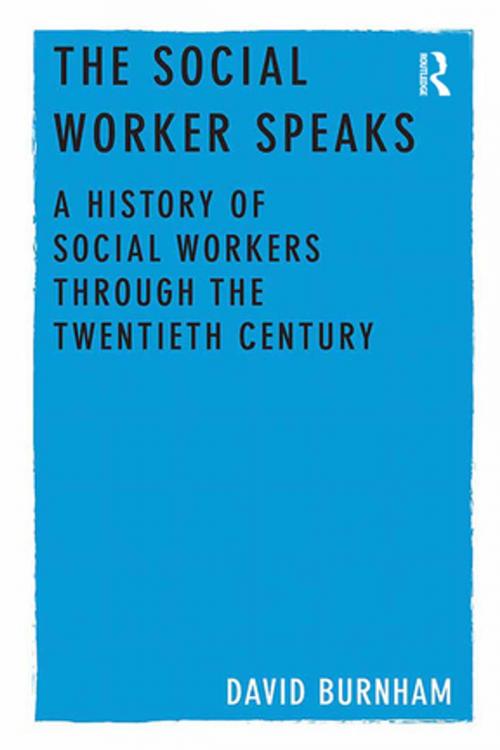The Social Worker Speaks
A History of Social Workers Through the Twentieth Century
Nonfiction, Social & Cultural Studies, Political Science, Politics, Social Services & Welfare| Author: | David Burnham | ISBN: | 9781317015451 |
| Publisher: | Taylor and Francis | Publication: | February 24, 2016 |
| Imprint: | Routledge | Language: | English |
| Author: | David Burnham |
| ISBN: | 9781317015451 |
| Publisher: | Taylor and Francis |
| Publication: | February 24, 2016 |
| Imprint: | Routledge |
| Language: | English |
The Social Worker Speaks charts the motivations, work activities and attitudes of social workers across the country from 1904 to 1989. The book is about workers in the public sector (from Poor Law to Social Services Departments), probation and workers in the voluntary field (including early century philanthropic visiting societies as well as specialist societies such as the Children's Society and the NSPCC). Where possible accounts by and the words and thoughts of social workers themselves are used. Since the war, histories of social work have concentrated on practice theory and methods, developments instigated by legislation, university training and professional status, but there has been little attention paid to who social workers were, what they believed, what they actually did, and what they thought of what they did. Also, individual social workers appearing in nearly all histories have been 'leaders' - managers, teachers or academics, with people who did the job on the front line accorded barely a mention. If part of the aim of this book is to remedy this partial coverage, another aim is to offer a more human history of social workers. There is too little celebration or humour in what has been published about the history of social workers; The Social Worker Speaks deliberately includes stories of how social workers behaved, their frustrations and triumphs, passions and occasional sins. So this is deliberately not a history of social work, but a history of social workers - the first of its kind.
The Social Worker Speaks charts the motivations, work activities and attitudes of social workers across the country from 1904 to 1989. The book is about workers in the public sector (from Poor Law to Social Services Departments), probation and workers in the voluntary field (including early century philanthropic visiting societies as well as specialist societies such as the Children's Society and the NSPCC). Where possible accounts by and the words and thoughts of social workers themselves are used. Since the war, histories of social work have concentrated on practice theory and methods, developments instigated by legislation, university training and professional status, but there has been little attention paid to who social workers were, what they believed, what they actually did, and what they thought of what they did. Also, individual social workers appearing in nearly all histories have been 'leaders' - managers, teachers or academics, with people who did the job on the front line accorded barely a mention. If part of the aim of this book is to remedy this partial coverage, another aim is to offer a more human history of social workers. There is too little celebration or humour in what has been published about the history of social workers; The Social Worker Speaks deliberately includes stories of how social workers behaved, their frustrations and triumphs, passions and occasional sins. So this is deliberately not a history of social work, but a history of social workers - the first of its kind.















